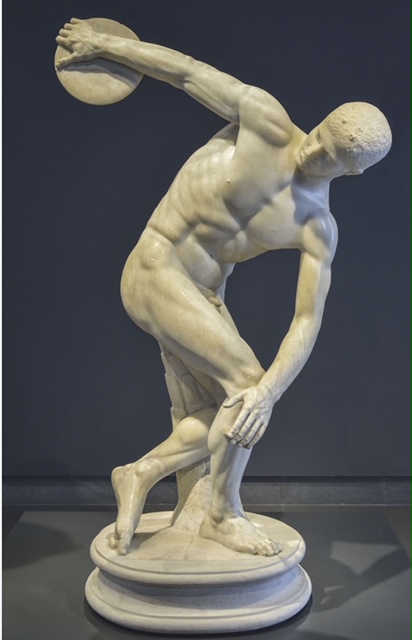
“Istoria secretă” este un roman de Donna Tartt, publicat pentru prima dată în 1992. Cartea este un thriller întunecat, psihologic, care explorează teme de frumusețe, moralitate și consecințele trăirii într-o lume desprinsă de realitatea convențională. Amplasată într-un colegiu de elită din Vermont, povestea urmărește un grup de șase studenți a căror obsesie pentru cultura greacă antică îi conduce pe o cale periculoasă a crimei și trădării.
Povestea este narată de Richard Papen, care se gândește la timpul petrecut la Hampden College, o școală mică de arte liberale din Vermont. Richard, originar din California, se transferă la Hampden și devine fascinat de un grup mic și exclusivist de studenți care studiază greaca veche sub îndrumarea misteriosului profesor Julian Morrow. Acești studenți sunt dotați din punct de vedere intelectual și trăiesc detașați de restul comunității universitare.
Richard reușește să intre în clasa de greacă, unde se împrietenește cu Henry, Bunny, Camilla, Charles și Francis. Grupul este extrem de secretos și exclusivist, mândrindu-se cu cunoștințele lor despre literatura și filozofia clasică. Henry, liderul neoficial, este deosebit de captivat de ideea de a trăi conform idealurilor grecilor antici, inclusiv căutarea frumuseții, a cunoașterii și a unui fel de libertate morală care transcende etica convențională.
Sub influența lui Henry, grupul decide să facă o Bacanală, un ritual din cultura greacă antică menit să inducă o stare de nebunie divină. Ritualul sfârșește groaznic de rău, ducând la moartea accidentală a unui fermier local. Acest eveniment este un punct de cotitură în roman, deoarece leagă grupul într-o plasă plină de secrete și vinovăție.
Bunny, care nu a făcut parte din Bacanală, începe să bănuiască ce s-a întâmplat și șantajează subtil grupul. Comportamentul și cerințele sale din ce în ce mai neregulate împing grupul până la un punct de criză. De teamă că Bunny le va dezvălui secretul, Henry decide că Bunny trebuie eliminat.
Grupul conspiră să-l ucidă pe Bunny împingându-l de pe o stâncă în timpul unei drumeții. Crima este înfățișată ca fiind îngrozitoare și inevitabilă, având în vedere căderea grupului în ambiguitate morală. Moartea lui Bunny este considerată un accident, dar vinovăția grupului începe să-i roadă din interior.
Romanul se termină cu Richard reflectând asupra consecințelor evenimentelor. A absolvit Colegiul Hampden, dar a rămas cu un sentiment profund de pierdere și dezamăgire. Membrii supraviețuitori ai grupului merg pe drumuri separate, cu toții afectați iremediabil de evenimente. Richard este lăsat să se gândească la alura și pericolul elitismului intelectual și detașării morale care i-au condus pe toți pe o cale atât de întunecată.
Romanul explorează ideea de a trăi dincolo de granițele morale tradiționale, arătând modul în care urmărirea idealurilor intelectuale și estetice poate duce la decăderea morală și la corupție. El critică pericolele elitismului intelectual, arătând cum un sentiment de superioritate poate duce la un comportament distructiv.
In English:
The Secret History is a novel by Donna Tartt, first published in 1992. The book is a dark, psychological thriller that explores themes of beauty, morality, and the consequences of living in a world detached from conventional reality. Set in an elite college in Vermont, the story follows a group of six students whose obsession with ancient Greek culture leads them down a dangerous path of murder and betrayal.
The story is narrated by Richard Papen, who looks back on his time at Hampden College, a small liberal arts school in Vermont. Richard, originally from a modest background in California, transfers to Hampden and becomes fascinated with a small, exclusive group of students who study ancient Greek under the guidance of the mysterious professor Julian Morrow. These students are intellectually gifted and live a life of privilege and isolation, detached from the rest of the college community.
Richard manages to gain entry into the Greek class, where he befriends Henry, Bunny, Camilla, Charles, and Francis. The group is highly secretive and exclusive, priding themselves on their knowledge of classical literature and philosophy. Henry, the unofficial leader, is particularly captivated by the idea of living according to the ideals of the ancient Greeks, including the pursuit of beauty, knowledge, and a kind of moral freedom that transcends conventional ethics.
Under Henry’s influence, the group decides to attempt a Bacchanal, a ritual from ancient Greek culture meant to induce a state of divine madness. The ritual goes horribly wrong, leading to the accidental death of a local farmer. This event is a turning point in the novel, as it binds the group together in a web of secrecy and guilt.
Bunny, who was not part of the Bacchanal, begins to suspect what happened and subtly blackmails the group. His increasingly erratic behavior and demands push the group to the breaking point. Fearing that Bunny will expose their secret, Henry decides that Bunny must be eliminated.
The group conspires to murder Bunny by pushing him off a cliff during a hike. The murder is portrayed as both horrific and inevitable, given the group’s descent into moral ambiguity. Bunny’s death is ruled an accident, but the group’s guilt begins to unravel them from within.
The novel ends with Richard reflecting on the aftermath of the events. He graduates from Hampden College but is left with a deep sense of loss and disillusionment. The surviving members of the group go their separate ways, all of them irreparably damaged by the events. Richard is left to ponder the allure and danger of the intellectual elitism and moral detachment that led them all down such a dark path.
The novel explores the idea of living beyond traditional moral boundaries, showing how the pursuit of intellectual and aesthetic ideals can lead to moral decay and corruption. It critiques the dangers of intellectual elitism, showing how a sense of superiority can lead to destructive behavior.
